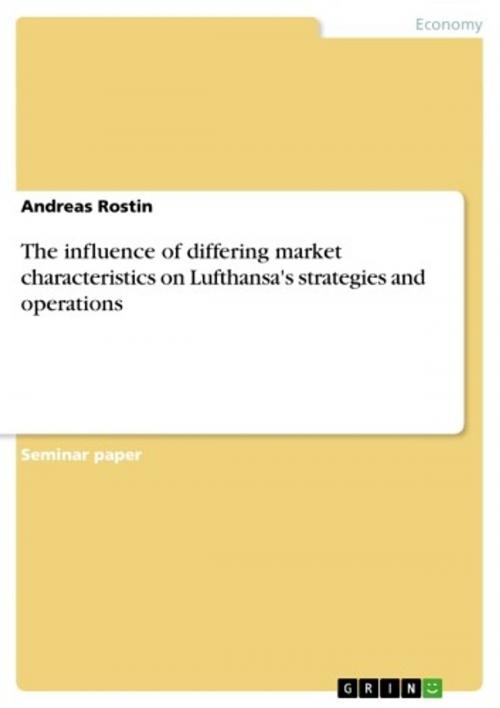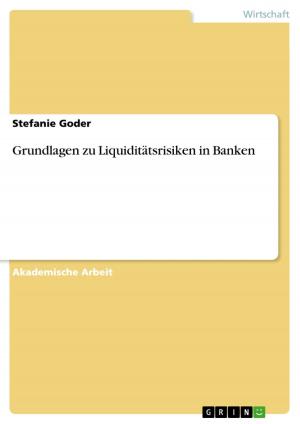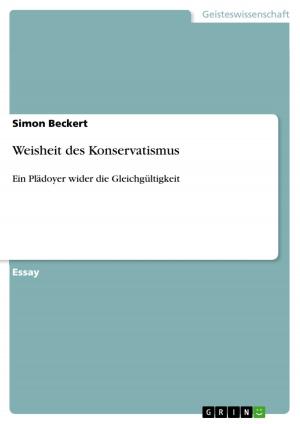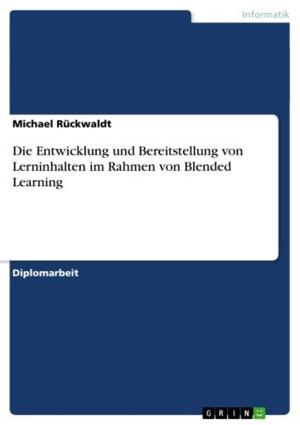The influence of differing market characteristics on Lufthansa's strategies and operations
Business & Finance, Management & Leadership, Management| Author: | Andreas Rostin | ISBN: | 9783638400749 |
| Publisher: | GRIN Verlag | Publication: | July 21, 2005 |
| Imprint: | GRIN Verlag | Language: | English |
| Author: | Andreas Rostin |
| ISBN: | 9783638400749 |
| Publisher: | GRIN Verlag |
| Publication: | July 21, 2005 |
| Imprint: | GRIN Verlag |
| Language: | English |
Seminar paper from the year 2004 in the subject Business economics - Business Management, Corporate Governance, grade: 1,0, Georgetown University, course: International Business, 21 entries in the bibliography, language: English, abstract: The airline industry has historically been an extremely volatile and in general unprofitable industry. According to financial reports compiled by the International Air Transport Association and the International Civil Aviation Organization (ICAO), aggregate industry-wide operating losses for the period 1985-2003 totaled $11.7 billion. Not all airlines, however, have been responsible for this poor overall performance. In the past ten years, Lufthansa German Airlines (Deutsche Lufthansa AG) has transformed itself from a struggling state-owned carrier into one of the most profitable airlines worldwide by positioning itself in the upper echelon of the lucrative premium travel market. Serving as an indicator for this successful transformation, Air Transport World - the leading monthly magazine covering the global airline industry - selected Lufthansa as its 'Airline of the Year' for both 1994 and 2000. This paper will analyze Lufthansa's award-winning business model by focusing on the airline's position in its three major markets: the European Union, the North Atlantic and China. After briefly outlining the current state of the airline industry in general and presenting a short company profile of Lufthansa, it will look into the following questions: In what way do differing economic, political and social conditions influence Lufthansa's strategic decisions in its home market - the European Union - in comparison to the North Atlantic market? When giving answers to this question, the paper will focus particularly on competition distortion stemming from heavy U.S. government involvement in the airline industry and what measures Lufthansa has taken in order to gain a competitive advantage over its U.S. counterparts. It will then turn its attention to Lufthansa's home market by evaluating the impact of the recent entry of low-cost carriers and analyzing Lufthansa's reaction to this challenge. Finally, the paper will assess the airline's potential in the Chinese market. In what way does this market differ from the ones examined before? Has Lufthansa been able to take advantage of the ample business opportunities China has to offer or have governmental regulatory obstacles hindered Lufthansa from maximizing its potential in this region? The paper will conclude by suggesting that Lufthansa will need the involved governments to tackle infrastructure and regulatory shortcomings in order to fully exploit its potential and cement its position as an industry leader.
Seminar paper from the year 2004 in the subject Business economics - Business Management, Corporate Governance, grade: 1,0, Georgetown University, course: International Business, 21 entries in the bibliography, language: English, abstract: The airline industry has historically been an extremely volatile and in general unprofitable industry. According to financial reports compiled by the International Air Transport Association and the International Civil Aviation Organization (ICAO), aggregate industry-wide operating losses for the period 1985-2003 totaled $11.7 billion. Not all airlines, however, have been responsible for this poor overall performance. In the past ten years, Lufthansa German Airlines (Deutsche Lufthansa AG) has transformed itself from a struggling state-owned carrier into one of the most profitable airlines worldwide by positioning itself in the upper echelon of the lucrative premium travel market. Serving as an indicator for this successful transformation, Air Transport World - the leading monthly magazine covering the global airline industry - selected Lufthansa as its 'Airline of the Year' for both 1994 and 2000. This paper will analyze Lufthansa's award-winning business model by focusing on the airline's position in its three major markets: the European Union, the North Atlantic and China. After briefly outlining the current state of the airline industry in general and presenting a short company profile of Lufthansa, it will look into the following questions: In what way do differing economic, political and social conditions influence Lufthansa's strategic decisions in its home market - the European Union - in comparison to the North Atlantic market? When giving answers to this question, the paper will focus particularly on competition distortion stemming from heavy U.S. government involvement in the airline industry and what measures Lufthansa has taken in order to gain a competitive advantage over its U.S. counterparts. It will then turn its attention to Lufthansa's home market by evaluating the impact of the recent entry of low-cost carriers and analyzing Lufthansa's reaction to this challenge. Finally, the paper will assess the airline's potential in the Chinese market. In what way does this market differ from the ones examined before? Has Lufthansa been able to take advantage of the ample business opportunities China has to offer or have governmental regulatory obstacles hindered Lufthansa from maximizing its potential in this region? The paper will conclude by suggesting that Lufthansa will need the involved governments to tackle infrastructure and regulatory shortcomings in order to fully exploit its potential and cement its position as an industry leader.















